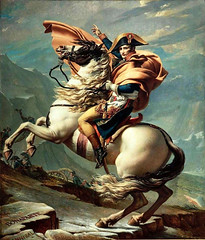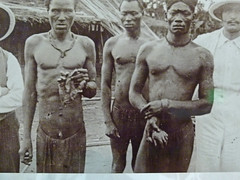| 9725546173 | abolitionist movement | An international movement that between approximately 1780 and 1890 succeeded in condemning slavery as morally repugnant and abolishing it in much of the world; the movement was especially prominent in Britain and the United
States. | | 0 |
| 9725546174 | creoles | Native-born elites in the Spanish colonies. |  | 1 |
| 9725546175 | Declaration of the Rights of Man and Citizen | Document drawn up by the French National Assembly in 1789 that proclaimed the equal rights of all men; the declaration
ideologically launched the French Revolution. |  | 2 |
| 9725546176 | Declaration of the Rights of Woman | Short work written by the French feminist Olympe de Gouges in 1791 that was modeled on the Declaration of the Rights of Man and Citizen and that made the argument that the equality proclaimed by the French revolutionaries must also include women. |  | 3 |
| 9725546177 | Estates General | French representative assembly called into session by Louis XVI to address pressing problems and out of which the French Revolution emerged; the three estates were the clergy, the nobility, and the commoners. |  | 4 |
| 9725546178 | Freetown | West African settlement in what is now Sierra Leone at which British naval commanders freed Africans they rescued from illegal slave ships. |  | 5 |
| 9725546179 | French Revolution | Massive dislocation of French society (1789-1815) that overthrew the monarchy, destroyed most of the French aristocracy, and launched radical reforms of society that were lost again, though only in part, under Napoleon's imperial rule and after the restoration of the monarchy. |  | 6 |
| 9725546180 | gens de couleur libres | Literally, "free people of color"; term used to describe freed slaves and people of mixed racial background in Saint Domingue on the eve of the Haitian Revolution. |  | 7 |
| 9725546181 | Haiti | Name that revolutionaries gave to the former French colony of Saint Domingue; the term means "mountainous" or "rugged" in the Taino language. |  | 8 |
| 9725546182 | Haitian Revolution | The only fully successful slave rebellion in world history; the uprising in the French Caribbean colony of Saint Domingue (later renamed Haiti) was sparked by the French Revolution and led to the establishment of an independent state after a long and bloody war (1791-1804). |  | 9 |
| 9725546183 | Hidalgo-Morelos rebellion | Socially radical peasant insurrection that began in Mexico in 1810 and that was led by the priests Miguel Hidalgo and José Morelos. |  | 10 |
| 9725546184 | Latin American revolutions | Series of risings in the Spanish colonies of Latin America (1810-1826) that established the independence of new states from Spanish rule but that for the most part retained the privileges of the elites despite efforts at more radical social
rebellion by the lower classes. |  | 11 |
| 9725546185 | Louverture, Toussaint | First leader of the Haitian Revolution, a former slave (1743-1803) who wrote the first constitution of Haiti and served as the first governor of the newly independent state. |  | 12 |
| 9725546186 | maternal feminism | Movement that claimed that women have value in society not because of an abstract notion of equality but because women have a distinctive and vital role as mothers; proponents argued that women have the right to intervene in civil and
political life because of their duty to watch over the future of their children. |  | 13 |
| 9725546187 | Napoleon Bonaparte | French head of state from 1799 until his abdication in 1814 (and again briefly in 1815); Napoleon preserved much of the French Revolution under an autocratic system and was responsible for the spread of revolutionary ideals through his conquest of much of Europe. |  | 14 |
| 9725546188 | nationalism | The focusing of citizens' loyalty on the notion that they are part of a "nation" with a unique culture, territory, and destiny; first became a prominent element of political culture in the nineteenth century. |  | 15 |
| 9725546189 | North American Revolution | Successful rebellion conducted by the colonists of parts of North America (not Canada) against British rule (1775-1787); a conservative revolution whose success assured property rights but established republican government in place of
monarchy. |  | 16 |
| 9725546190 | petit blancs | The "little" (or poor) white population of Saint Domingue, which played a significant role in the Haitian Revolution. |  | 17 |
| 9725546191 | Seneca Falls Conference | The first organized women's rights conference, which took place at Seneca Falls, New York, in 1848. |  | 18 |
| 9725546192 | Stanton, Elizabeth Cady | Leading figure of the early women's rights movement in the
United States (1815-1902). |  | 19 |
| 9725546193 | The Terror | Term used to describe the revolutionary violence in France in 1793-1794, when radicals under the leadership of Maximilien Robespierre executed tens of thousands of people deemed enemies of the revolution. |  | 20 |
| 9725546194 | Third Estate | In prerevolutionary France, the term used for the 98 percent of the population that was neither clerical nor noble, and for their representatives at the Estates General; in 1789, the Third Estate declared itself a National Assembly and launched the
French Revolution. |  | 21 |
| 9725546195 | Tupac Amaru | The last Inca emperor; in the 1780s, a Native American rebellion against Spanish control of Peru took place in his name. |  | 22 |
| 9725546196 | bourgeoisie | Term that Karl Marx used to describe the owners of industrial capital; originally meant "townspeople." |  | 23 |
| 9725546197 | British Royal Society | Association of scientists established in England in 1660 that was dedicated to the promotion of "useful knowledge." |  | 24 |
| 9725546198 | caudillo | A military strongman who seized control of a government in nineteenth-century Latin America. |  | 25 |
| 9725546199 | Crimean War | Major international conflict (1854-1856) in which British and French forces defeated Russia; the defeat prompted reforms within Russia. |  | 26 |
| 9725546200 | dependent development | Term used to describe Latin America's economic growth in the nineteenth century, which was largely financed by foreign capital and dependent on European and North American prosperity and decisions. |  | 27 |
| 9725546201 | Díaz, Porfirio | Mexican dictator from 1876 to 1911 who was eventually overthrown in a long and bloody revolution. |  | 28 |
| 9725546202 | The Duma | The elected representative assembly grudgingly created in Russia by Tsar Nicholas II in response to the 1905 revolution. |  | 29 |
| 9725546203 | Indian cotton textiles | For much of the eighteenth century, well-made and inexpensive cotton textiles from India flooded Western markets; the competition stimulated the British textile industry to industrialize, which led to the eventual destruction of the Indian textile market both in Europe and in India. |  | 30 |
| 9725546204 | Labour Party | British working-class political party established in the 1890s and dedicated to reforms and a peaceful transition to socialism, in time providing a viable alternative to the revolutionary emphasis of Marxism. |  | 31 |
| 9725546205 | Latin American export boom | Large-scale increase in Latin American exports (mostly raw materials and foodstuffs) to industrializing countries in the second half of the nineteenth century, made possible by major improvements in shipping; the boom mostly benefited the upper and middle classes. |  | 32 |
| 9725546206 | Lenin | Pen name of Russian Bolshevik Vladimir Ulyanov (1870-1924), who was the main leader of the Russian Revolution of 1917. |  | 33 |
| 9725546207 | Marx, Karl | The most influential proponent of socialism, Marx (1818-1883) was a German expatriate in England who advocated working-class revolution as the key to creating an ideal communist future. |  | 34 |
| 9725546208 | Mexican Revolution | Long and bloody war (1911-1920) in which Mexican reformers from the middle class joined with workers and peasants to overthrow the dictator Porfirio Díaz and create a new, much more democratic political order. |  | 35 |
| 9725546209 | Model T | The first automobile affordable enough for a mass market; produced by American industrialist Henry Ford. |  | 36 |
| 9725546210 | Owens, Robert | Socialist thinker and wealthy mill owner (1771-1858) who created an ideal industrial community at New Lanark, Scotland. |  | 37 |
| 9725546211 | Peter the Great | Tsar of Russia (r. 1689-1725) who attempted a massive reform of Russian society in an effort to catch up with the states of Western Europe. |  | 38 |
| 9725546212 | Populism | Late-nineteenth-century American political movement that denounced corporate interests of all kinds. | | 39 |
| 9725546213 | progressivism | American political movement in the period around 1900 that advocated reform measures to correct the ills of industrialization. |  | 40 |
| 9725546214 | proletariat | Term that Karl Marx used to describe the industrial working class; originally used in ancient Rome to describe
the poorest part of the urban population. |  | 41 |
| 9725546215 | Russian Revolution of 1905 | Spontaneous rebellion that erupted in Russia after the country's defeat at the hands of Japan in 1905; the revolution was suppressed, but it forced the government to make substantial reforms. |  | 42 |
| 9725546216 | steam engine | Mechanical device in which the steam from heated water builds up pressure to drive a piston, rather than
relying on human or animal muscle power; the introduction of the steam engine allowed a hitherto unimagined increase in productivity and made the Industrial Revolution possible. |  | 43 |
| 9725546217 | Abd al-Hamid II | Ottoman sultan (r. 1876-1909) who accepted a reform constitution but then quickly suppressed it, ruling as a reactionary autocrat for the rest of his long reign. |  | 44 |
| 9725546218 | Boxer Rebellion | Rising of Chinese militia organizations in 1900 in which large numbers of Europeans and Chinese Christians were killed. |  | 45 |
| 9725546219 | China, 1911 | The collapse of China's imperial order, officially at the hands of organized revolutionaries but for the most part under the weight of the troubles that had overwhelmed the government for the previous half-century. |  | 46 |
| 9725546220 | daimyo | Feudal lords of Japan who retained substantial autonomy under the Tokugawa shogunate and only lost their social preeminence in the Meiji restoration. |  | 47 |
| 9725546221 | Hong Xiuquan | Chinese religious leader (1814-1864) who sparked the Taiping Uprising and won millions to his unique form of Christianity, according to which he himself was the younger brother of Jesus, sent to establish a "heavenly kingdom of great peace" on earth. |  | 48 |
| 9725546222 | informal empire | Term commonly used to describe areas that were dominated by Western powers in the nineteenth century but that retained their own governments and a measure of independence, e.g., Latin America and China. |  | 49 |
| 9725546223 | Meiji restoration | The overthrow of the Tokugawa shogunate of Japan in 1868, restoring power at long last to the emperor Meiji. |  | 50 |
| 9725546224 | Perry, Matthew | U.S. navy commodore who in 1853 presented the ultimatum that led Japan to open itself to more normal relations with the outside world. |  | 51 |
| 9725546225 | Opium Wars | Two wars fought between Western powers and China (1839-1842 and 1856-1858) after China tried to restrict the importation of foreign goods, especially opium; China lost both wars and was forced to make major concessions. |  | 52 |
| 9725546226 | Russo-Japanese War, 1904-1905 | Ending in a Japanese victory, this war established Japan as a formidable military competitor in East Asia and precipitated the Russian Revolution of 1905. |  | 53 |
| 9725546227 | samurai | Armed retainers of the Japanese feudal lords, famed for their martial skills and loyalty; in the Tokugawa shogunate, the samurai gradually became an administrative elite, but they did not lose their special privileges until the Meiji restoration. |  | 54 |
| 9725546228 | self-strengthening movement | China's program of internal reform in the 1860s and 1870s, based on vigorous application of Confucian principles and limited borrowing from the West. |  | 55 |
| 9725546229 | Selim III | Ottoman sultan (r. 1789-1807) who attempted significant reforms of his empire, including the implementation of new military and administrative structures. |  | 56 |
| 9725546230 | "sick man of Europe, the" | Western Europe's unkind nickname for the Ottoman Empire in the nineteenth and early twentieth centuries, a name based on the sultans' inability to prevent Western takeover of many regions and to deal with internal problems; it fails to recognize serious reform efforts in the Ottoman state during this period. |  | 57 |
| 9725546231 | Social Darwinism | An application of the concept of "survival of the fittest" to human history in the nineteenth century. (NOT from Darwin - its from Herbert Spencer). |  | 58 |
| 9725546232 | Taiping Uprising | Massive Chinese rebellion that devastated much of the country between 1850 and 1864; it was based on the millenarian teachings of Hong Xiuquan. |  | 59 |
| 9725546233 | Tanzimat reforms | Important reform measures undertaken in the Ottoman Empire beginning in 1839; the term "Tanzimat" means "reorgani-zation." | | 60 |
| 9725546234 | Tokugawa shogunate | Rulers of Japan from 1600 to 1868. |  | 61 |
| 9725546235 | Unequal treaties | Series of nineteenth-century treaties in which China made major concessions to Western powers. |  | 62 |
| 9725546236 | Young Ottomans | Group of would-be reformers in the mid-nineteenth-century Ottoman Empire that included lower-level officials, military officers, and writers; they urged the extension of Westernizing reforms to the political system. |  | 63 |
| 9725546237 | Young Turks | Movement of Turkish military and civilian elites that developed ca. 1900, eventually bringing down the Ottoman Empire. |  | 64 |
| 9725546238 | Africanization of Christianity | Process that occurred in non-Muslim Africa, where millions who were converted to Christianity sought to maintain older traditions alongside new Christian ideas; many converts continued using protective charms and medicines and consulting local medicine men, and many continued to believe in their old gods and spirits. | | 65 |
| 9725546239 | apartheid | Afrikaans term literally meaning "aparthood"; the system that developed in South Africa of strictly limiting the social and political integration of whites and blacks. | | 66 |
| 9725546240 | Blyden, Edward | Prominent West African scholar and political leader (1832-1912) who argued that each civilization, including that of Africa, has its own unique contribution to make to the world. | | 67 |
| 9725546241 | cash-crop agriculture | Agricultural production, often on a large scale, of crops for sale in the market, rather than for consumption by the farmers themselves. | | 68 |
| 9725546242 | colonial racism | A pattern of European racism in their Asian and African colonies that created a great racial divide between Europeans and the natives, and limited native access to education and the civil service, based especially on pseudo-scientific notions of naturally superior and inferior races. |  | 69 |
| 9725546243 | colonial tribalism | A European tendency, especially in African colonies, to identify and sometimes invent distinct "tribes" that had often not existed before, reinforcing European notions that African societies were primitive. |  | 70 |
| 9725546244 | Congo Free State/Leopold II | Was the king of Belgium from 1865 to 1909; his rule as private owner of the Congo Free State during much of that time is typically held up as the worst abuse of Europe's second wave of colonization, resulting as it did in millions of deaths. |  | 71 |
| 9725546245 | cultivation system | System of forced labor used in the Netherlands East Indies in the nineteenth century; peasants were required to cultivate at least 20 percent of their land in cash crops, such as sugar or coffee, for sale at low and fixed prices to government contractors, who then earned enormous profits from further sale of the crops. | | 72 |
| 9725546246 | Indian Rebellion, 1857-1858 | Massive uprising of much of India against British rule; also called the Indian Mutiny or the Sepoy Mutiny from the fact that the rebellion first broke out among Indian troops in British employ. |  | 73 |
| 9725546247 | scramble for Africa | Name used for the process of the European countries' partition of the continent of Africa between themselves in the period 1875-1900. |  | 74 |
| 9725546248 | Vivekananda, Swami | Leading religious figure of nineteenth-century India (1863-1902); advocate of a revived Hinduism and its mission to reach out to the spiritually impoverished West. | | 75 |
| 9725546249 | Western-educated elite | The main beneficiaries in Asian and African lands colonized by Western powers; schooled in the imperial power's language and practices, they moved into their country's professional classes but ultimately led anticolonial movements as they grew discouraged by their inability to win equal status to the colonizers. | | 76 |












































































































































